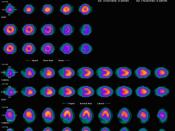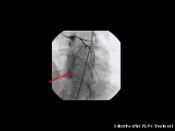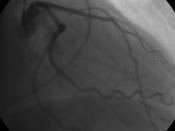Unit
Disease | Signs and Symptoms |
HIV | Many people who are HIV-positive do not experience any symptoms of HIV infection. Sometimes symptoms appear after a year of infection or even after a decade. Often people only begin to feel sick when they progress toward AIDS (Acquired Immunodeficiency Syndrome). But those who do have symptoms may experience: Fever Chills Rash Night sweats Muscle aches Sore throat Fatigue Swollen lymph nodes Ulcers in the mouth It is important to know that most people do not suffer symptoms so tests must be taken to know if you are HIV+ |
Malaria | There are many symptoms for malaria that infect nearly 75% of children in tropical countries, these symptoms may include: fever headache vomiting flu-like symptoms followed by internal bleeding kidney and liver failure |
Creutzfeldt- Jacob disease | CJD is caused by an abnormal protein, called prion, which affects the nervous system. CJD is sometimes called the "great mimicker" because it causes symptoms that occur in many other neurological diseases. These symptoms include: Behavioral and personality changes Confusion and memory problems Depression Insomnia Lack of coordination Strange physical sensations Vision problems As the disease advances, some may experience dementia and involuntary jerking movements called myoclonus. |
Herpes | The first signs of herpes are sometimes a tingling, itching and burning sensations at the site of infection. These "pre-outbreak" symptoms are often called prodrome. In genital herpes more symptoms are present, these symptoms include: painful red blisters that burst to leave open sores around your genitals, rectum, thighs and buttocks blisters and ulcers on the cervix (lower part of the womb) in women vaginal discharge in women pain when you pass urine a high temperature (fever) of 38°C (100.4°F) or over a general feeling of being unwell, with aches and pains flu like symptoms These symptoms may... |


